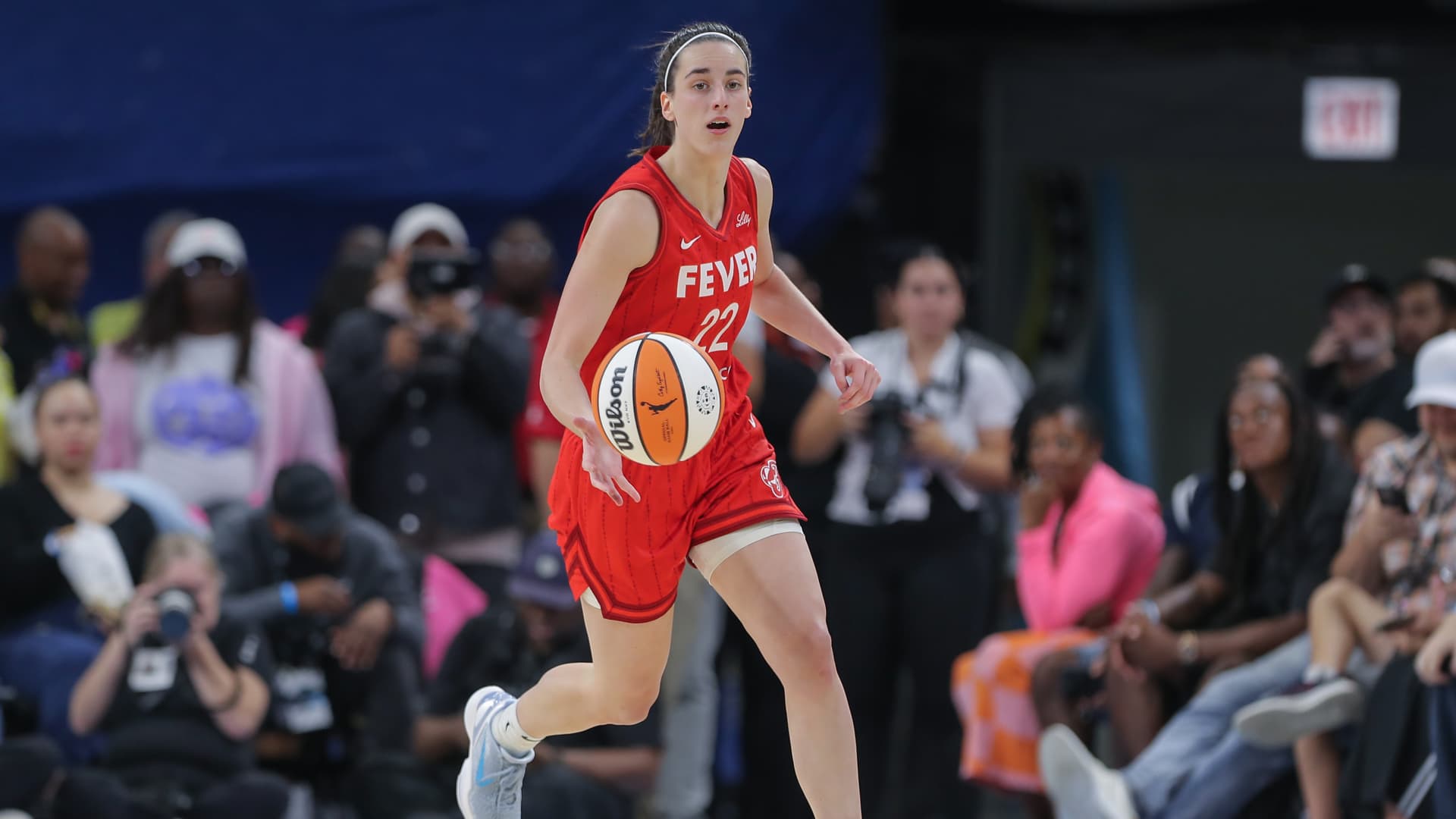Global Trends and Politics
The Importance of Cultural Competence in Political Hiring: Why It Matters

Diversity in Political Hiring
In today’s globalized and interconnected world, the political landscape is more diverse than ever. With people from different ethnic, cultural, and linguistic backgrounds entering the political sphere, it is crucial for political organizations to adopt a culturally competent approach to hiring. This not only ensures a more representative and diverse workplace but also enhances the overall performance and effectiveness of the organization.
What is Cultural Competence?
Cultural competence refers to the ability of an individual or an organization to understand and appreciate the cultural differences, values, and norms of individuals from diverse backgrounds. It is about being aware of one’s own biases and assumptions, and being able to adapt to different cultural contexts. In the context of political hiring, cultural competence is essential for building trust, fostering effective communication, and making informed decisions.
The Benefits of Cultural Competence in Political Hiring
Cultural competence in political hiring offers numerous benefits, including:
- Enhanced diversity and representation: By hiring candidates from diverse backgrounds, political organizations can reflect the community they serve and better understand their needs and concerns.
- Better communication: Cultural competence enables effective communication across cultures, reducing misunderstandings and misperceptions.
- Increased creativity and innovation: A culturally diverse team brings together individuals with different perspectives and experiences, leading to innovative solutions and ideas.
- Improved decision-making: Cultural competence enables political organizations to make informed decisions by considering diverse perspectives and experiences.
- Enhanced community engagement: By hiring candidates from diverse backgrounds, political organizations can build stronger relationships with the community and increase their engagement and participation in the political process.
Challenges in Achieving Cultural Competence in Political Hiring
While cultural competence is essential in political hiring, achieving it can be challenging. Some of the challenges include:
- Lack of awareness and understanding of cultural differences: Many individuals may lack awareness and understanding of cultural differences, leading to unintentional bias and discrimination.
- Unconscious bias: Even well-intentioned individuals may harbor unconscious biases that can affect their hiring decisions.
- Limited representation: In many cases, political organizations may not have a diverse pool of candidates to choose from, making it challenging to find candidates from diverse backgrounds.
- Resistance to change: Changing the status quo and adopting a culturally competent approach to hiring can be met with resistance from within the organization.
Best Practices for Achieving Cultural Competence in Political Hiring
To achieve cultural competence in political hiring, organizations can adopt the following best practices:
- Develop a diverse pool of candidates: Make a concerted effort to attract and consider candidates from diverse backgrounds.
- Use inclusive language: Use inclusive language in job postings and during the hiring process to attract candidates from diverse backgrounds.
- Provide cultural awareness training: Provide training on cultural awareness and sensitivity to ensure that hiring managers and interviewers are equipped to make informed decisions.
- Use standardized evaluation criteria: Use standardized evaluation criteria to assess candidates, reducing the risk of bias and ensuring that all candidates are evaluated fairly.
- Monitor and evaluate progress: Regularly monitor and evaluate the organization’s progress towards achieving cultural competence in hiring, making adjustments as needed.
Conclusion
In conclusion, cultural competence is essential in political hiring. It enables political organizations to build a diverse and representative workforce, fosters effective communication, and enhances decision-making. By adopting a culturally competent approach to hiring, political organizations can better serve their communities and achieve their goals. Remember that cultural competence is a journey, and it requires ongoing effort and commitment to achieve.
FAQs
Q: What is the difference between cultural competence and cultural awareness?
A: Cultural awareness refers to being aware of cultural differences, while cultural competence goes a step further, requiring the ability to adapt to those differences and apply that knowledge in practical situations.
Q: How can I develop cultural competence?
A: Developing cultural competence requires ongoing education and training, as well as exposure to diverse cultures through personal and professional experiences.
Q: What are some common biases that can affect hiring decisions?
A: Common biases that can affect hiring decisions include unconscious bias, confirmation bias, and stereotyping.
Q: How can I overcome my own biases and biases in others?
A: Overcoming biases requires self-reflection, education, and training. It also involves being open to feedback and willing to learn from others.
Global Trends and Politics
WNBA, Scripps Renew Media Rights Deal

Introduction to the WNBA Media Rights Agreement
The WNBA and E.W. Scripps announced a new multiyear media rights agreement to carry Friday night WNBA matchups on Ion. This agreement also includes the "WNBA on Ion" studio show, the first weekly broadcast show dedicated exclusively to WNBA coverage.
Details of the Agreement
The value of the deal was not disclosed, but media reports peg the original deal that expires at the end of the 2025 season at an average of $13 million annually. The WNBA has been airing games on Ion since 2023. This season, the network will broadcast 50 regular season games. Ion is available on pay TV and streaming platforms in more than 128 million homes.
Growth and Popularity of the WNBA
The new agreement comes after Ion has seen huge growth with the WNBA and as the league gains in popularity thanks to stars such as Caitlin Clark and Angel Reese. The network said WNBA Friday Night Spotlight viewership grew 133% year over year and more than 23 million unique viewers tuned into the coverage.
Statements from WNBA and Scripps Executives
"Our robust partnership with the league has flourished, and we are thrilled to solidify ION’s status as the premier Friday night destination for WNBA action for years to come," said Scripps CEO Adam Symson. WNBA Commissioner Cathy Engelbert said the partnership with Scripps has helped the league expand its reach and visibility. "This new multi-year agreement reflects the growing excitement surrounding the league and the rising demand for WNBA games," she said.
Previous Media Rights Deals
The league signed an 11-year media rights deal with Disney, Amazon, and Comcast-owned NBCUniversal last July as part of the NBA’s media rights negotiation. The WNBA’s deal is valued at about $200 million per year.
Conclusion
The new media rights agreement between the WNBA and E.W. Scripps is a significant step forward for the league, providing more exposure and visibility for the players and teams. With the growing popularity of the WNBA, this agreement is expected to bring in more viewers and fans to the league.
FAQs
Q: What is the new media rights agreement between the WNBA and E.W. Scripps?
A: The new agreement is a multiyear deal to carry Friday night WNBA matchups on Ion, including the "WNBA on Ion" studio show.
Q: How many regular season games will Ion broadcast this season?
A: Ion will broadcast 50 regular season games this season.
Q: How many unique viewers tuned into the WNBA Friday Night Spotlight coverage?
A: More than 23 million unique viewers tuned into the coverage.
Q: What is the value of the WNBA’s media rights deal with Disney, Amazon, and Comcast-owned NBCUniversal?
A: The WNBA’s deal is valued at about $200 million per year.
Q: How long is the WNBA’s media rights deal with Disney, Amazon, and Comcast-owned NBCUniversal?
A: The deal is for 11 years.
Global Trends and Politics
Israel-Iran Flight Disruptions

Introduction to Flight Disruptions
Airlines around the world canceled flights to Israel and were skirting a large swath of airspace in the Middle East on Friday after Israel’s overnight missile strikes on Iran. Iran later launched drones toward Israeli territory. The flight map over the Middle East as Iran launches retaliatory attacks on Israel at 19:19 UTC on June 13th, 2025, shows the extent of the disruptions.
Flight Cancellations and Suspensions
Delta Air Lines on Friday afternoon said it was suspending its service to Tel Aviv, Israel, until at least September, just weeks after resuming flights there. It had most recently resumed flights on May 20, and as of last week Delta had said it was planning to increase service to Israel later this year from New York to two daily nonstop flights, "responding to strong winter demand." United Airlines suspended its Tel Aviv flights through July 31, and said in a statement that "we will continue to evaluate an appropriate return date with the safety of our customers and crews as our top priority."
Impact on Air Travel
Both carriers’ Tel Aviv-bound flights turned around over the Atlantic Ocean to return to the New York area after Israel’s strikes overnight. United put 26 of its crew members who were on layover in Israel on Israeli airline El Al to get back to the U.S., a spokesman said. El Al has since suspended service. "Following recent security developments and in accordance with the instructions from the state’s security and aviation authorities to close Israeli airspace, all EL AL and Sundor flights are suspended for the time being," it said on its website.
Airline Reactions and Warnings
The carrier said it won’t take bookings until at least the end of June and warned customers against going to Tel Aviv’s Ben Gurion Airport. "For customers currently abroad, we recommend arranging accommodation until there is a change in security directives," El Al said. "Flights that were en route to Israel have been diverted to land at various EL AL destinations." Israel closed its airspace and suspended flight operations at Ben Gurion International Airport in Tel Aviv, Israel on June 13, 2025.
Global Airline Responses
Turkish Airlines and European budget carrier Wizz Air also suspended Israel flights. Germany’s Lufthansa said it was suspending Tel Aviv and Tehran service until July 31 and flights to Jordan and Lebanon until at least June 20. Emirates said it was canceling service from its base in Dubai to Iraq, Jordan, Lebanon, and Iran. Airlines offered travel vouchers and waived change fees to customers affected by the disruptions.
Conclusion
Escalating military conflicts in the Middle East and Ukraine have forced airlines to repeatedly take longer and more costly routes to avoid conflict zones. The situation highlights the challenges faced by the aviation industry in ensuring safe and uninterrupted travel amidst geopolitical tensions.
FAQs
Q: Why are airlines canceling flights to Israel?
A: Airlines are canceling flights to Israel due to the escalating military conflict between Israel and Iran, which has led to the closure of Israeli airspace and suspension of flight operations at Ben Gurion International Airport.
Q: Which airlines have suspended flights to Israel?
A: Delta Air Lines, United Airlines, El Al, Turkish Airlines, Wizz Air, Lufthansa, and Emirates have suspended flights to Israel.
Q: What alternatives are airlines offering to affected customers?
A: Airlines are offering travel vouchers and waiving change fees to customers affected by the disruptions.
Q: How long will the flight suspensions last?
A: The duration of the flight suspensions varies by airline, with some suspending flights until July 31 and others until at least September.
Q: Are there any other regions affected by flight disruptions?
A: Yes, airlines are also avoiding airspace in Ukraine and other parts of the Middle East due to military conflicts.
Global Trends and Politics
JBS Brazilian Meat Company Goes Public In US

Introduction to JBS
The JBS Greeley meatpacking facility in Greeley, Colorado, US, on Friday, Feb. 28, 2025.
Shares of Brazilian meat giant JBS rose during their U.S. public market debut on Friday.
Initial Public Offering
The opening trade of $13.65 per share values the company at roughly $30 billion, outstripping rival Tyson Foods’ market cap of about $19.82 billion. Shares closed at $13.87, a slight gain for the day.
JBS is now trading on the New York Stock Exchange under the ticker "JBS," a day later than initially expected. The company said it couldn’t conclude certain operational procedures in time to debut on Thursday. Its stock was delisted from the Sao Paolo Exchange in Brazil a week ago as part of the dual-listing plan.
Company Overview
Since its founding more than seven decades ago, JBS has grown to become the world’s largest meatpacking company. Last year, the company reported net revenue of $77.2 billion and net income of $2 billion, according to regulatory filings.
JBS operates a sprawling business worldwide, with significant divisions in Brazil, the U.S. and Australia. The company also owns more than 80% of Pilgrim’s Pride, the U.S. poultry giant.
History of the US Listing
JBS’s U.S. listing is more than 15 years in the making. The company’s U.S. subsidiary first announced plans to go public in 2009, but the move never came to fruition after two postponements. Then, in late 2016, the company said it would have a U.S. initial public offering as part of a broader reorganization strategy. But months later, the Brazilian government began investigating corruption in the meatpacking company — including among JBS and its top executives.
Corruption and Bribery Allegations
J&F Investimentos, the holding company that owns a controlling stake in JBS, paid a $3.2 billion fine in 2017 to settle bribery charges. Former chair Joesley Batista and his older brother CEO Wesley Batista, the company’s top shareholders and the sons of its founder, managed to avoid prison sentences by cooperating with prosecutors. The Batistas and J&F settled with the U.S. Securities and Exchange Commission in 2020 for roughly $27 million.
The Batistas exited J&F in the wake of the scandal. However, they returned to the company’s board last year after being acquitted of insider trading charges.
Recent Developments
More recently, in October, the Brazilian government fined JBS for buying cattle that were allegedly illegally raised in protected land in the Amazon.
The company’s history of corruption and bribery allegations led to opposition to its U.S. listing from lawmakers on the both sides of the aisle, making it look unlikely that regulators would grant their approval.
After President Donald Trump’s reelection, JBS’s subsidiary Pilgrim’s Pride donated $5 million to his inauguration committee, making it the single largest donor. In a statement, the company said it had a "long bipartisan history participating in the civic process" and looked forward to working with the new administration.
The SEC approved JBS’s request to list on the New York Stock Exchange in April. JBS shareholders approved the move by a narrow margin the following month.
Conclusion
In conclusion, JBS has finally made its US public market debut, with shares rising during the first day of trading. The company’s history of corruption and bribery allegations has been a major obstacle to its US listing, but it has now overcome this hurdle. With its significant divisions in Brazil, the US, and Australia, JBS is well-positioned for future growth.
FAQs
Q: What is JBS?
A: JBS is the world’s largest meatpacking company, with significant divisions in Brazil, the US, and Australia.
Q: What was the initial public offering price of JBS shares?
A: The opening trade of $13.65 per share values the company at roughly $30 billion.
Q: Why was JBS’s US listing delayed?
A: JBS’s US listing was delayed due to the company’s history of corruption and bribery allegations, as well as opposition from lawmakers.
Q: Who are the major shareholders of JBS?
A: The Batista family, including Joesley and Wesley Batista, are the top shareholders of JBS.
Q: What is the current market capitalization of JBS?
A: The current market capitalization of JBS is roughly $30 billion.
-

 Career Advice6 months ago
Career Advice6 months agoInterview with Dr. Kristy K. Taylor, WORxK Global News Magazine Founder
-

 Diversity and Inclusion (DEIA)6 months ago
Diversity and Inclusion (DEIA)6 months agoSarah Herrlinger Talks AirPods Pro Hearing Aid
-

 Career Advice6 months ago
Career Advice6 months agoNetWork Your Way to Success: Top Tips for Maximizing Your Professional Network
-

 Changemaker Interviews5 months ago
Changemaker Interviews5 months agoUnlocking Human Potential: Kim Groshek’s Journey to Transforming Leadership and Stress Resilience
-

 Diversity and Inclusion (DEIA)6 months ago
Diversity and Inclusion (DEIA)6 months agoThe Power of Belonging: Why Feeling Accepted Matters in the Workplace
-

 Global Trends and Politics6 months ago
Global Trends and Politics6 months agoHealth-care stocks fall after Warren PBM bill, Brian Thompson shooting
-

 Global Trends and Politics6 months ago
Global Trends and Politics6 months agoUnionization Goes Mainstream: How the Changing Workforce is Driving Demand for Collective Bargaining
-

 Training and Development6 months ago
Training and Development6 months agoLevel Up: How Upskilling Can Help You Stay Ahead of the Curve in a Rapidly Changing Industry









